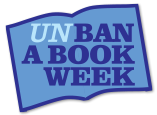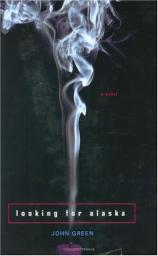 John Green is one of the premiere names in the contemporary YA scene; his book THE FAULT IN OUR STARS rose to the bestseller list almost instantaneously, he's chased by hordes of screaming fans and he has film deals for nearly all of his books.
John Green is one of the premiere names in the contemporary YA scene; his book THE FAULT IN OUR STARS rose to the bestseller list almost instantaneously, he's chased by hordes of screaming fans and he has film deals for nearly all of his books.
His first novel, LOOKING FOR ALASKA, focuses on Miles “Pudge” Halter, a boy attending boarding school for the first time who has just added something new to his list of obsessions (he can’t get enough of famous last words): Alaska Young, the girl down the hall.
Although reviewers called it “brilliant,” “compelling” and “beautifully told,” the book has landed on the American Library Association’s list of Top Ten Frequently Challenged Books in both 2012 and 2013.
Below, YA author Adi Alsaid (LET’S GET LOST, NEVER ALWAYS SOMETIMES) and Teen Board members Brynn S. and Rachel D. talk about their personal feelings towards the book, and what they would say if they came face to face with a book-banner.
 Do you remember when you read this book for the first time? How old were you? Did you read it for school or for pleasure?
Do you remember when you read this book for the first time? How old were you? Did you read it for school or for pleasure?
Adi Alsaid:Yes! I was about 25, really starting to feel the pull of YA. It was definitely read for pleasure, as I hadn’t been in school in a long time.
Brynn S.: I was in seventh grade and probably 12 years old when I read it after I read THE FAULT IN OUR STARS. I read it for pleasure because I wanted to read all of John Green's books.
Rachel D.:I first read this book when I was 13. All of my friends were raving about John Green and I wanted to see what all the fuss was about!
What do you like about this book, and how would you persuade somebody else to read it?
AA: The emotional highs and lows are extremely well done. The characters are relatable, their dialogue as real and enticing as it gets. John Green gets criticized for employing the Manic Pixie Dream Girl often, and while it’s certainly a trope that is used in his novels, I think he does a great job of illustrating the consequences of seeing another human being as just an idea, rather than a real person. If you want “feels” from your books, this one will not disappoint.
BS: I really enjoyed how funny this book was. Though it had serious moments, I was often almost brought to tears from laughing at some parts. I would persuade someone to read the book by saying it's an entertaining story that's a quick read but also makes you think and feel (though it isn't as emotional as THE FAULT IN OUR STARS.)
RD: In this novel, John Green uses a tone of writing that is able to convey emotion in both lighthearted and extremely hard times. This coming-of-age novel describes loss and newfound responsibility in a way we can all relate to.
In an email to the Verona (NJ) Board of Education, a parent tried to ban LOOKING FOR ALASKA, saying she did not "especially want my children reading about drinking, smoking, using drugs, and gratuitous sex scenes, including one where students describe pornography and one where students engage in detailed oral sex." If you had the chance to respond to that quote, what would you say?
AA: I’d venture to say that her children are well aware of the existence of all those things, and that reading about them is likely to be their least harmful exposure. The internet alone makes an ostrich-in-the-sand approach pretty futile, though that’s never seemed like a useful strategy to me. If you have concerns about all the listed “offenses,” talk to your kids about them. Rather than trying to ear-muff them and pretending none of these potentially touchy subjects exist by banishing all mention of them, just have a conversation. Tell them about the health hazards of drinking, smoking and drugs. Talk to them about safe and responsible sex practices. Trust them to read about all these things and still act in a way that’s in line with your family’s values.
BS: I would say that yes, it does have those things you listed, but high school has all of those things too (even if the average student doesn't do those things as much as the characters in the book). Instead of glossing over these things, John Green writes about them a way that is realistic for some high school students. Also, it shows situations of drinking irresponsibly, which would be a good lesson for children.
RD: Although this parent's claim is definitely true, the scenes she described are very brief in the book. Also, there is way more to this novel than “smoking, using drugs and gratuitous sex scenes”. This book touches on the fundamental events happening in teens' lives: growing up and losing the ones you love.
You need to give the protagonist of this book a book recommendation. What would you recommend, and why?
AA: SUM: Forty Tales from the Afterlivesby David Eagleman. Pudge’s obsession with dying words would probably lead him to be very interested in this insanely creative collection of short stories by neuroscientist David Eagleman, examining 40 different potential afterlives.
BS: I would recommend PAPER TOWNS by John Green to Pudge, the main character. The main character of PAPER TOWNS and Pudge seem very similar and I feel like Pudge could relate to the main character, Q, who is pining after a girl who is similar to Alaska in a few ways.
RD: I would recommend that the protagonists read another one of John Green's books, PAPER TOWNS. Both books deal with self-identity and a journey of finding oneself and growing up.


